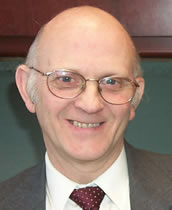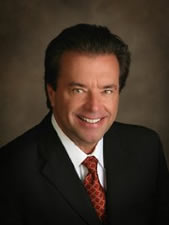4/5/2013· Engineering
Case Study: Coke Oven Battery Analysis
By: Bill O'Donnell
A comprehensive engineering analysis was performed on a coke oven battery roof and heating walls. Coke oven batteries are constructed with refractory bricks.
By: Gerald Davis
Tel: 804-967-9129
Email Mr. Davis
A licensed professional engineer (P.E.) is required to adhere to a Code of Ethics for Engineers in all work he undertakes. However, there are some special criteria when employed as an expert witness.
As in all their work - in litigation or not - the P.E. is obligated to only take on work for which he or she is fully qualified. Obviously the retaining attorney is very interested in this factor so as to reinforce the credibility of the expert's opinions and to guard against their possible impeachment by opposing counsel. The retaining attorney can make general judgments about the suitability of one potential expert versus another but the fundamental assessment rests with the separate candidates. Each engineer knows both what they know and what they don't know and, after a brief discussion with the attorney, they can best judge how that background meshes with the technical question(s) at issue in the case. Even though it will likely be to their immediate financial detriment, the ethical engineer will turn down a potential assignment if he believes the assignment is outside of his expertise. Instead and whenever possible, that engineer will use her knowledge of different fields of science and engineering to recommend the type of expert (or maybe a specific individual) that could best serve in the case.
The P.E. as an expert witness has the obligation of assisting the trier of fact (whether that be jury or judge) to understand and reach the truth regarding often complex technical questions by offering his or her best, objective opinion on the issues. The expert is not an advocate for either party in the suit. If the objectivity of an expert can be effectively attacked his immediate effectiveness for the retaining attorney is lost along with the probability that he will be able to do effective expert work for others. Both knowledgeable attorneys and experts are aware of this and neither wants (or wants to be) a "hired gun". The attorney always has the option of not designating the engineer as an expert in his case.
If a potential expert has a conflict of interest for serving as such in a given case she has the responsibility to reveal this to the attorney when first contacted. Obviously it is the engineer that knows what he or she has done in the past and what constraints or agreements they have committed to and so it is their obligation to honestly reveal that information. There may or may not be a conflict but providing complete information is the best policy.
The P.E. is a professional and as such they should always meet their commitments and they should always complete needed preparation. That includes adhering to promises for delivery of the report, being available for scheduled phone or in-person discussions with the retaining attorney and properly reviewing the reports and depositions from the opposition. It also means being thoroughly prepared for their depositions and appearance at trial. A major part of this is acknowledging past commitments and being honest about what (and when) new matters can be completed. Of course, it should be expected that the retaining attorney is equally professional in all his or her interactions with the expert.
Because of its significance, the P.E. expert witness will devote considerable attention and thought to the methodology he or she will use to analyze the technical issues and develop opinions. Whenever possible the approach should be based on standardized or widely accepted procedures and clearly cited sources within the given engineering or science specialty. The ethical expert is most interested in getting to the truth in the most direct way possible. He is not employed in the case to display the range or depth of his personal knowledge.
Gerald O. Davis, PE, President and co-owner of DM&ME, has over 40 years experience in Materials Engineering and Business. Mr. Davis is a Forensic Expert in Materials Usage, Corrosion, Metallurgy, Mechanical Failure, & Root-Cause Failure Analysis. His recent background includes work as a corrosion researcher, senior engineer, and program manager for Battelle Memorial Institute, DNV, Inc., Henkels & McCoy, Inc., respectively and, since 2004, as president of DM&ME.
©Copyright - All Rights Reserved
DO NOT REPRODUCE WITHOUT WRITTEN PERMISSION BY AUTHOR.

4/5/2013· Engineering
Case Study: Coke Oven Battery Analysis
By: Bill O'Donnell
A comprehensive engineering analysis was performed on a coke oven battery roof and heating walls. Coke oven batteries are constructed with refractory bricks.

9/26/2014· Engineering
By: Dr. Ewen Todd
Hand washing with soap is a practice that has long been recognized as a major barrier to the spread of disease in food production, preparation, and service and in health care settings, including hospitals, child care centers, and elder care facilities. Many of these settings present multiple opportunities for spread of pathogens within at-risk populations, and extra vigilance must be applied. Unfortunately, hand hygiene is not always carried out effectively, and both enteric and respiratory diseases are easily spread in these environments. Where water is limited or frequent hand hygiene is required on a daily basis, such as for many patients in hospitals and astronauts in space travel, instant sanitizers or sanitary wipes are thought to be an effective way of preventing contamination and spread of organisms among coworkers and others. Most concerns regarding compliance are associated with the health care field, but the food industry also must be considered.

12/1/2011· Engineering
Engineering: Your Internet Image Could Be Sabotaging Your Career
By: John Hoschette
With the wealth of knowledge available at the click of a mouse, the Internet is a wonderful tool that can really help accelerate your career. But have you ever stopped to consider what information about you might be available to others on the Internet?




